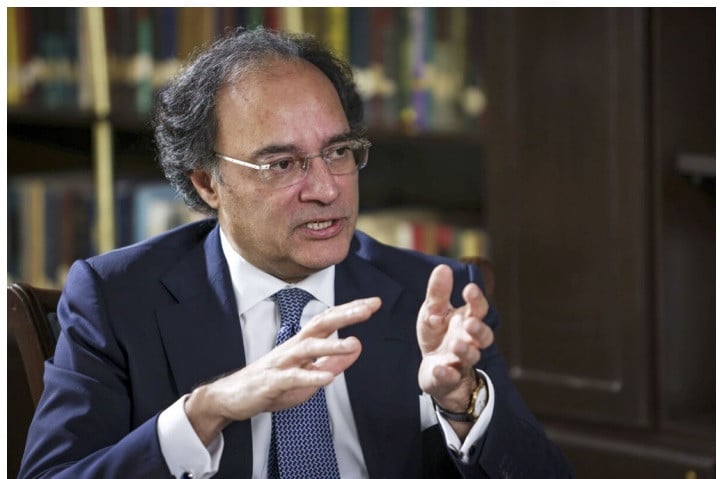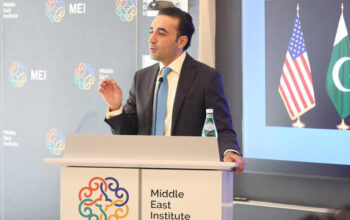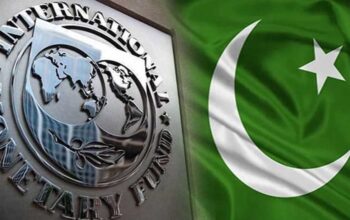By Staff Reporter
ISLAMABAD: Pakistan will not retaliate against tariffs proposed by US President Donald Trump’s administration, Finance Minister Muhammad Aurangzeb said on Monday, even as analysts warn the delayed levies threaten to destabilise the South Asian nation’s fragile export economy.
Aurangzeb said the country has chosen instead to pursue diplomatic solutions to save its $5.3 billion export market in the US.
The retaliatory tariffs, which threaten to disrupt Pakistan’s export market in the U.S., have been temporarily postponed but still loom large over the South Asian nation’s economy.
Speaking to the BBC, Aurangzeb addressed the uncertainty sparked by the tariff proposals.
“We all need to think about how to move forward in this new world order, and I believe it is essential to engage in dialogue on this matter,” he said. When pressed on whether Pakistan would impose countermeasures, he replied firmly, “If the question is whether Pakistan plans to respond with countermeasures, the answer is no.”
The US announced the tariffs last week, initially proposing a 29 percent levy on Pakistani exports, though this has been postponed for 90 days. Even so, a minimum 10 percent tariff will apply across affected nations. The U.S. is Pakistan’s largest single-country export destination, with $5.3 billion in goods—mostly textiles and apparel—shipped in fiscal 2024. These exports already face duties as high as 17 percent.
Aurangzeb emphasized Pakistan’s precarious position amid U.S.-China trade frictions. “The United States has long been a strategic partner, but relations with China are equally important,” he said
The minister emphasized Pakistan’s intent to resolve tensions through dialogue, noting the U.S. and China—a key ally under the $65 billion China-Pakistan Economic Corridor—are “irreplaceable partners.”
Analysts at the state-run Pakistan Institute of Development Economics (PIDE) say full implementation of the tariffs could be catastrophic.
A policy note projected that a combined duty of 37.6 percent—the proposed 29 percent plus the existing 8.6 percent Most Favored Nation rate—might slash U.S. exports by 20-25 percent, translating to an annual loss of $1.1 billion to $1.4 billion.
The textile sector, a cornerstone of Pakistan’s economy, would bear the brunt and risking 500,000 job losses.
“A storm may be brewing on Pakistan’s trade horizon… proposed reciprocal tariffs by the United States could have a devastating impact on the country’s export sector,” PIDE cautioned, highlighting risks of macroeconomic instability, job losses, and dwindling foreign exchange reserves. The report, authored by Dr. Muhammad Zeshan, Dr. Shujaat Farooq, and Dr. Usman Qadir, underscored that eroded price competitiveness could cede market share to regional rivals like India and Bangladesh.
PIDE recommended immediate diplomatic efforts to underscore the mutual costs of disrupting the U.S.-Pakistan textile supply chain, where American cotton fuels Pakistani mills that produce garments for U.S. consumers. “Disrupting this value chain benefits neither country,” the report argued.
PIDE advocated for export diversification, targeting markets like the EU, China, ASEAN, Africa, and the Middle East in sectors such as IT, halal food, and sports goods. It also called for structural reforms—slashing energy and logistics costs, simplifying regulations, and fostering innovation—to bolster Pakistan’s global trade standing. “The road ahead is challenging, but it also presents a chance for Pakistan to recalibrate and strengthen its export framework.”
Copyright © 2021 Independent Pakistan | All rights reserved




